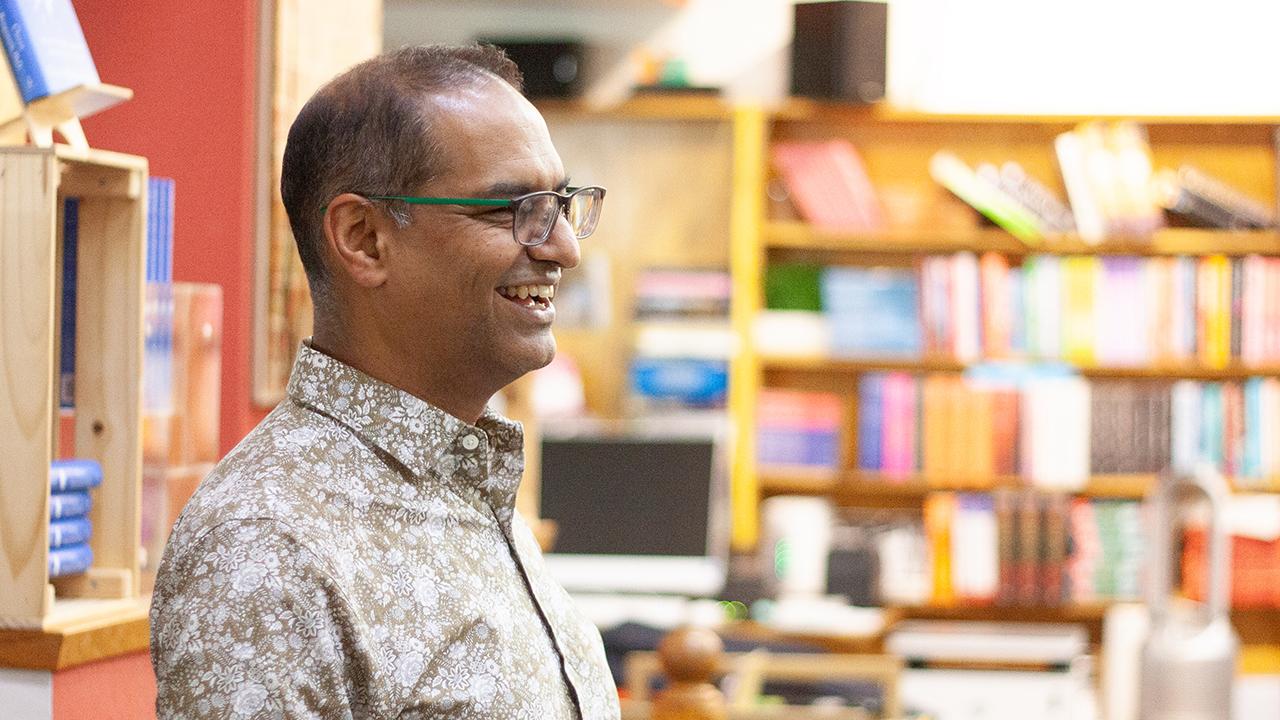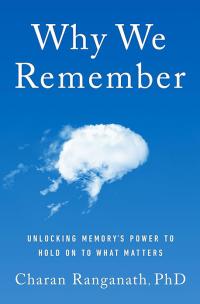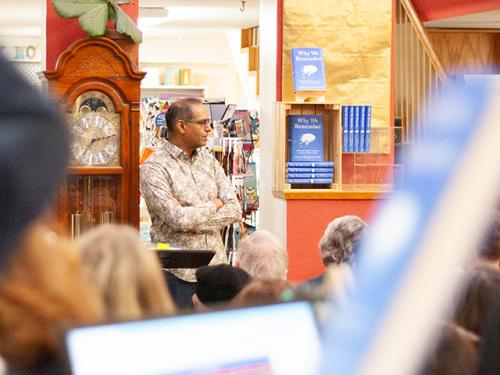
Bestselling Book Blends Science and Storytelling to Explain How Memory Shapes Our Lives
Charan Ranganath admits he can be forgetful. This is true of most people, but most people are not leading experts on the neuroscience of human memory.
“Everybody knows I have a terrible memory,” said Ranganath, a professor of psychology and neuroscience at UC Davis, “and yet I got a Ph.D. and I publish papers all the time. I'm totally functional, so maybe the expectations we have are just wrong.”
Ranganath’s new book, Why We Remember, combines the latest research from his field with his own personal experiences to share how memory actually works and the role it plays in our daily lives. Just published on Feb. 20, it launched in its first week to No. 5 on The New York Times bestseller list for nonfiction.
LeBron James and the reality of human memory

Part of Ranganath’s motivation to write the book is that people usually think of memory the wrong way. Ranganath points to LeBron James, one of basketball’s all-time greats, to illustrate one of the common misconceptions about how memory works.
When asked about the game, particularly a loss, James can recite, moment-by-moment, exactly how it went. His recall is so precise that his narration matches perfectly with video recaps of the game.
Rather than proof of a superhuman memory, Ranganath said that this seemingly uncanny ability is the product of James’ vast experience and library of knowledge about basketball. Having played in more than 1,400 professional games over the past 20 years, the details of each individual game fit a ready scaffold of every other game.
“Everybody has this ability in some form,” said Ranganath. “If I tell you I went to a wedding last week, before I even say anything, you've got this story already in your head and what I tell you just fills in the blanks.”
Human memory from clinic to laboratory
Memory, said Ranganath, actually plays a supporting role to our brain’s prefrontal cortex that is like the CEO. He describes the prefrontal cortex as the part of the brain that keeps us grounded in reality and focused on our goals. Memories give the prefrontal cortex the information it needs to do its job well.
“We expect the wrong things from our brains,” said Ranganath. “If you don't think about how we use memory all the time, you're putting it in the driver's seat as opposed to using it as a kind of helpful passenger that gives you directions.”
Ranganath first became interested in memory as a neuropsychology intern helping to evaluate patients with memory problems after suffering injuries. He also worked as a psychotherapist and helped people deal with mental health issues like post-traumatic stress disorder (PTSD), which is itself a memory problem.
For the past 20 years, Ranganath had studied and taught about human memory at UC Davis, where he leads the Dynamic Memory Lab. The College of Letters and Science provided support for the Memory and Plasticity Program that he directs, which has become a central hub for learning and memory research and education on campus.
“We have one of the greatest memory research communities in the world,” said Ranganath.
Writing a book about memory for everyone
Ranganath’s new book is for anyone who wants to understand how memory works so they can lead more fulfilling lives. He grounds the discussion of the science behind memory with his own life experiences, like treating clinical patients or taking his daughter out for a day at the park.

The process of writing the book also changed his interests as a scholar, he said. He found ways his research might address our understanding of artificial intelligence (AI), which became part of our collective experience in 2022 with the launch of ChatGPT. He also became more interested in collective memory and the role it plays in misinformation, which continues to be a broad social challenge.
“Memory is a huge part of our social world and our social world is a huge part of our memory,” said Ranganath. “If you don't appreciate that, you're vulnerable to all sorts of negative influences.”
Though only released on Feb. 20, Ranganath’s book has already received tremendous media coverage, including features and op-eds in Publishers Weekly, Los Angeles Times, The Washington Post, The New York Times and many other publications. The book is unique in its blend of relatability grounded in knowledge from a leading expert, and few topics are as relevant to everyone as human memory.
“Whether it's how you feel in this moment or whether it's your self-concept in general, those are also shaped by memories,” said Ranganath. “When you don't understand that, it creates lots of problems, and if you do understand that, it offers solutions.”
